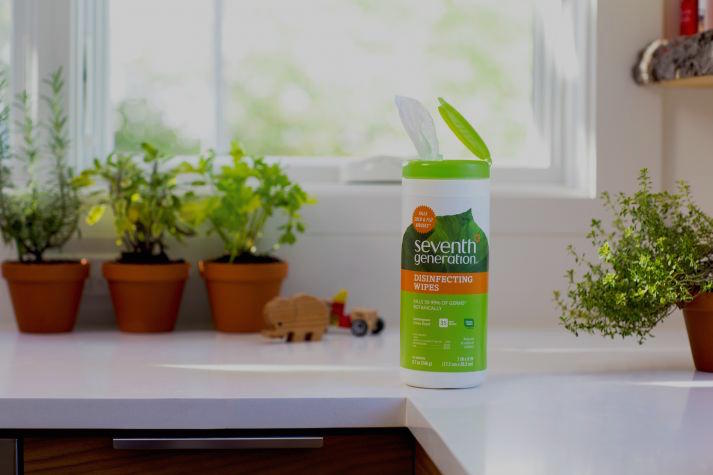Days after Unilever was rumored to be discussing a deal to purchase The Honest Company — the line of household and personal care products co-founded by actress Jessica Alba — the company behind everything from Ben & Jerry’s to Vaseline added a different high-profile independent brand to its portfolio: The eco-friendly cleaning supply folks at Seventh Generation. [More]
green
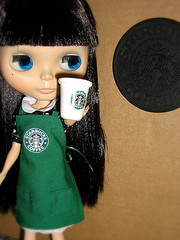
Starbucks Introduces $1 Reusable Tumbler That You’ll Probably Leave At Home
Do you remember to bring your reusable tote bag to the grocery store for a ten-cent discount? Would you remember to bring an inexpensive reusable tumbler back to Starbucks for your daily coffee? Starbucks is hoping that some people do, offering the new cups and a discount in an effort to cut back on the total number of cups the the chain uses per year. [More]
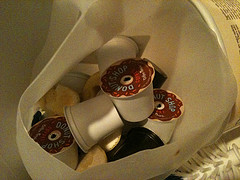
After Getting Slammed, Keurig Promises To Find Recyclable Versions Of K-Cups
Keurig’s single-use coffee pods might be convenient, but they can’t be recycled. Clean Water Action is calling on them to clean up their act, and Keurig has promised to try really hard. [More]
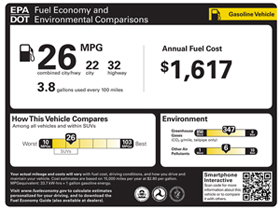
New Fuel-Economy Stickers Actually Display Car's Fuel Economy
The U.S. Department of Transportation and Environmental Protection Agency have rolled out the biggest redesign of the car window stickers that display a vehicle’s estimated fuel efficiency since the labels were introduced. The new stickers, designed to be easier to read and to provide more information about fuel savings and costs, will be required for all 2013 cars. [More]
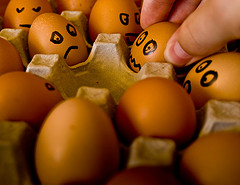
Is That "Organic" Egg A Good Egg?
Not all organic eggs are created equal. While different cartons of eggs might all have the same “Organic! Yay!” label slapped on them, standards for what that means can vary from farm to farm. One might meet minimum USDA or Federal standards while another has no real outdoor access for the chickens to speak of. To help you navigate the bedeviling array of options, The Cornucopia Institute has created an Organic Egg Scorecard to rate farms on a 5-egg system. Small farms with lots of pasture for the chickens to frolic in rate highly, while eggs put out by Trader Joe’s, Kirkland, and Price Chopper only get a one egg rating. [More]
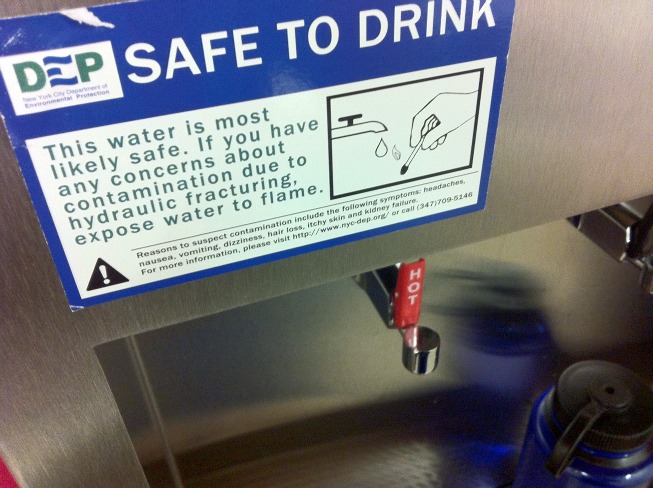
H2O Police Says Just Light A Match Before Drinking
At first glance this sticker I spotted on a water fountain appears to be from the New York City Department of Environmental Protection, telling citizens that they’ve checked out the water and it’s probably safe. If you have any doubts about there being chemicals in there that seeped in because of hydraulic fracturing, don’t worry, just turn on the spigot and do the ‘ol match test and see if it bursts into flame. Wait, what? [More]

IKEA No Longer Stocking Or Selling Incandescent Light Bulbs
IKEA has done away with energy-hogging incandescents ahead of federal legislation that would mandate more efficient light bulbs starting in 2012. [More]
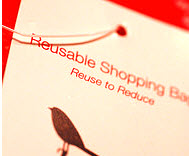
Like Everything Else In Life, Reusable Shopping Bags Are Full Of Gross Bacteria
A new study says that you should be washing your reusable shopping bags because they might be full of gross bacteria such as e. coli, particularly if you used them to tote raw meat. [More]
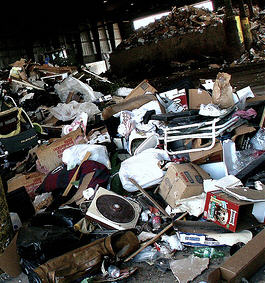
Report: Americans Trash The Environment And Don't Care
The National Geographic Greendex survey of sustainable consumption is out, and most of the 17 countries in the study have improved over the past year. In the lowest-scoring one, though, consumers are actually less concerned about the environment and think that the whole issue is being exaggerated. And a majority in that country believe their current habits are unsustainable, but they’re cool with letting their grandkids deal with it. [More]
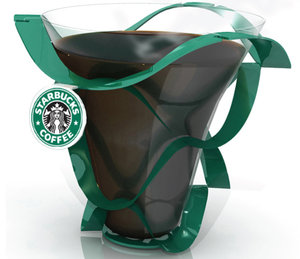
Starbucks Sponsors Contest To Create Green Coffee Cups
Not content with offering discounts to customers who bring in their own travel mugs, Starbucks has now thrown its weight behind “betacup,” a contest to “eliminate paper cup consumption through the design of a more convenient alternative to the reusable coffee mug.” Some of the ideas submitted so far include a hemp-based cup (we have some ideas about how to recycle that one), cups made from coconut shells, and inflatable, reusable cups. [More]
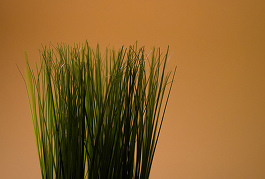
How To Spot Fakes When Shopping For Green Products
If you want to buy environmentally friendly products when you’re out shopping, you’ll find plenty of options these days. The trouble is that “green,” like “organic,” is considered a very loose concept by lots of manufacturers. The Chicago Tribune put together a list of ways you can spot the fakes on your next shopping trip. Here’s an easy rule of thumb: the words eco, earth, green, friendly, gentle and kind are all frequently used to give the impression of being environmentally friendly, but they’re essentially meaningless marketing words. [More]
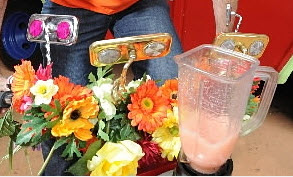
Bicycle Blender Smoothie Cart Gives $1 Discount If You Pedal Yourself
A new smoothie cart across from the Museum of Natural History in New York City will be powered by bicycles, says the NY Post. If you pedal the blender yourself you can get $1 off. [More]
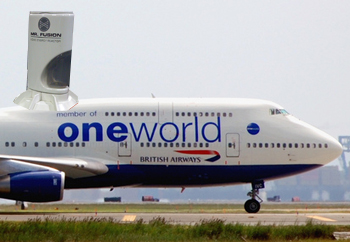
British Airways Gets Trashy, Plans To Start Using Garbage For Fuel
Because we’ll always make garbage and we may not always be able to make jet fuel, British Airways announced today that they’ve partnered with biofuel company Solena Group to begin using fuel converted from waste materials in 2014. [More]
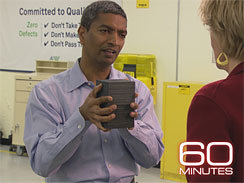
Bloom Box Can Supposedly Power A Small Home, But You Can't Afford It
60 Minutes has reported on a new fuel cell product called a Bloom Box, a big metal box containing a small stack of ceramic disks and “ink” that can supposedly provide enough power to run a Starbucks. The big questions are: Does it work? And will it ever help the average homeowner save on energy costs? Google has supposedly been using four of them to power one of its data centers for the past 18 months, so yes to the first question. As for home use, a Bloom Box currently costs over $700,000, so no. Inventor K.R. Sridhar optimistically says he wants to get the price to under $3,000 in the next 5 to 10 years, though. Watch the 60 Minute segment below. [More]
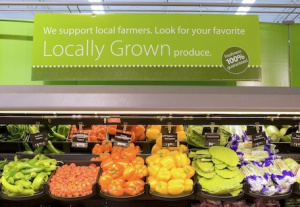
How Walmart Is Going Green
Ideally, companies choose to lessen their environmental impact because it makes financial sense, not because it makes them feel good–which is a good thing, since companies don’t have feelings. Today, FastCompany published a slideshow that looks at 12 ways the mega-retailer is trying out various green initiatives. Some of them are more about selling the concept of green to consumers, which is dumb, but the ones that deal with shipping, energy consumption, and market creation are pretty impressive. [More]

TerraSkin, The Paper Made From Rocks
Terraskin is a paper that is made entirely from rocks and resin. Its production uses neither trees nor water. The rock mainly comes from construction waste material. The resin is mainly post-industrial recycled material. [More]
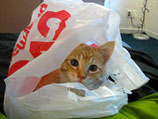
Greenbacks For Green Bags At CVS
Many stores offer discounts to customers who bring their own reusable bags to shop. Now, CVS is integrating their customer loyalty program with a green initiative, and plans to reward customers with 25 cents every time they use reusable bags.
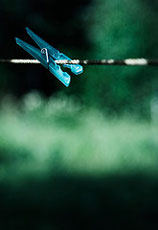
Consumers: Adopting Greener Behaviors Or Just Cheap?
This month, Consumer Reports is publishing the results of a survey of American adults asking about their adoption of “green” behaviors. Interesting, right? However, we can’t help but wonder whether some of these behaviors are more about saving money than saving the planet.


